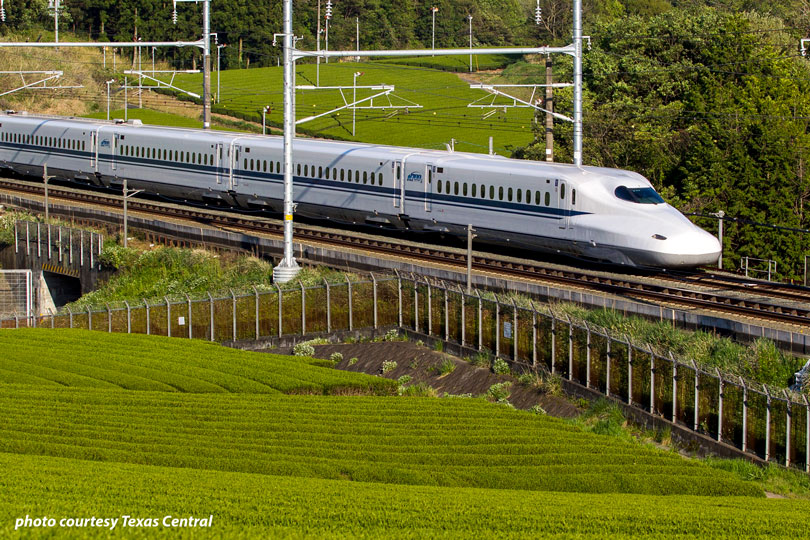By Jennifer Whitlock
Field Editor
The Texas Supreme Court recently announced it granted a motion to rehear a Leon County landowner’s lawsuit against Texas Central Railroad challenging its status as a railroad company under Texas law.
In his petition for review, Leon County Farm Bureau member James Miles argued Texas Central is not operating a railroad, because it has not taken crucial steps toward operation “such as laying track or running cars.”
Miles also argued Texas Central is not an “interurban electric railway” because the 81st Texas Legislature, which added a clause regarding interurban electric railway companies to the State of Texas Transportation Code in 2009, did not intend to include large high-speed railways within the statutory definition.
The case comes after Texas’ 13th Court of Appeals reversed a lower court ruling stating Texas Central was not a railroad.
If Texas Central is not a railroad company under state law, it cannot access private property for surveys or exercise eminent domain authority to acquire land needed to construct its proposed 236-mile high-speed rail line connecting Dallas to Houston.
After initially declining to review the case in June, the Texas Supreme Court reversed course in October when it granted Miles a rehearing.
“Texas Farm Bureau (TFB) , along with many other agricultural organizations and landowner groups, filed an amicus brief in this case earlier this year,” TFB Director of Government Affairs Regan Beck said. “Apparently, all of those amicus briefs were persuasive, and the court decided later they did want to hear it after all. We’ll be interested to see what happens in January when the court hears oral arguments.”
Another key aspect of Miles’ argument relates to a 2016 Texas Supreme Court decision in which the court ruled “a reasonable probability must exist that a project will be completed before obtaining eminent domain power,” according to Miles’ case summary.
Texas Central has faced multiple financial concerns as the company attempted to secure funding and land for its proposed “bullet train,” which the company says would take riders from one city to the other in 90 minutes.
An agreement between Texas Central and Japan’s Shinkansen train system, which the company intends to use for its Texas line, has not yet been reached, leading many to question its status as a viable railroad company.
“We remain confident that, ultimately, the Texas Supreme Court will conclusively resolve this issue in Texas Central’s favor, agreeing with the court of appeals’ well-reasoned decision and concluding that Texas Central qualifies as an entity entitled to use survey and eminent domain authority under the Texas Transportation Code,” Texas Central said in a statement.


Even if all the land is obtained, the reality is minimal for the eventual completion and successful operation of the project. No precendnce to a true bullet train on dedicated infrastructure or successful operation of a bullet train in US!